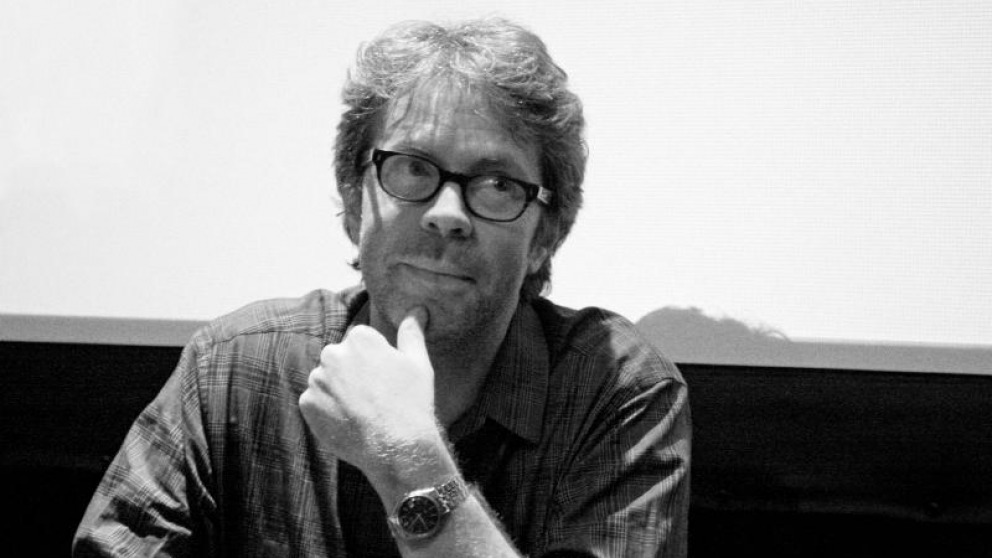Giving up false hope: Why climate fatalism is hard to swallow, but necessary
25.09.2019

Jonathan Franzen’s essay on the “climate apocalypse” has drawn a lot of criticism. His fatalistic attitude is uncomfortable, but it may be more inspiring for our thinking and acting than unrealistic optimism.
On September 8th, 2019, The New Yorker published an opinion piece entitled “What If We Stopped Pretending? The climate apocalypse is coming. To prepare for it, we need to admit that we can’t prevent it”, written by Jonathan Franzen. The article speaks to larger truths that all people, but scientists in particular, struggle to reckon with. The relentless pace with which temperature records are being broken in our oceans and atmosphere around the world is a constant reminder that climate change is happening, now. Increasing temperatures in our delicate climate system are intensifying droughts, floods, wildfires, and hurricanes – the massive destruction wrought by Hurricane Dorian in the Bahamas being just the most recent example. Closer to home, the record-breaking heatwaves in central Europe this past summer ominously foreshadowed what normal summers could feel like by mid-century on the way to a 2° C-world.
Evidence exceeding all expectations
Recent results from global climate science are further cause for alarm. Researchers assessing the rate of melting in both Canadian and Russian permafrost have found levels not expected to occur until 2090, according to climate models. Permafrost and its associated ecosystems are crucial, not only because of their carbon storage potential, but also because of their potential to perpetuate runaway climate change. Permafrost melting on a massive scale will lead to the escape of huge quantities of trapped frozen methane – a greenhouse gas four times stronger than carbon dioxide – with a disproportionately large impact on climate warming. Unless we substantially reduce human emissions of greenhouse gases, permafrost will likely turn from a carbon sink into a net carbon source by 2100. In addition, the aforementioned heatwave that broke records in Europe this year eventually settled over Greenland, whose crucial glaciers and ice sheets proceeded to record their second-highest rates of summer melting (second only to 2012).
Climate change is here to stay
Faced with such an onslaught of concrete evidence, one would expect concerted efforts by world leaders to systematically change society and rapidly reduce carbon emissions. But the reality drifts far from this expectation: in 2018, carbon emissions increased by 2.7% to their highest levels ever, with no signs of abating. In short, climate change is here, it’s happening faster than climate scientists predicted it would, and global society is not doing nearly enough to slow it down.
Accepting the reality of a hotter world
So why is Franzen’s article worth highlighting here? As he so fatally states, “all-out war on climate change made sense only as long as it was winnable.” In other words, we should all accept the inevitability of a 2° C-hotter world, because classifying it as only one of many potential futures is irresponsibly naïve. To hope that it will all end happily is to allow your optimism to blind you to the reality of the utter inaction on climate in the last 30 years.
Misguided optimism is just another form of climate denial
Though Franzen’s knowledge of the details of climate science leaves a lot to be desired (“In the long run, it probably makes no difference how badly we overshoot two degrees; once the point of no return is passed, the world will become self-transforming.”), he does have a point in stating that we should accept the truth of our future. Perhaps we should avoid the phrases “saving our planet” and “stopping” or even “reversing” climate change and start internalizing this reality: our collective global civilization is irreversibly headed towards living on a planet with a radically different climate.
But how might we respond to the acceptance of such a truth?
The truth is, I don’t know. No one really knows how human societies will respond to the pressures of climate change. Can they wisely manage their reactions to the increase in societal entropy and collapse gracefully? Will they allow the instability to grow until it reaches its climax and tears apart global society? Franzen is of the opinion that we should prematurely enter a doomsday paradigm and begin to think more selfishly of ourselves and those that we love, tapering our goals to align with the inevitable societal collapse:
Local action is indeed a crucial part of successful climate action, not only because your efforts result in more tangible outcomes, but because any successes, however small, strengthen your resolve to do more. But under no circumstances give up your global perspective, because without it, we lose that which unites us all: our common humanity. Think globally, but act locally.
Stalling the doomsday scenario
In the face of climate change, time is now our most precious resource. We must use it as efficiently and as humanly as possible to achieve what we can now, so that the doomsday climate scenario continues to be pushed further into the future. It is likely inevitable, but it’s now our responsibility to stall its arrival and to adjust to it in a spirit of cooperation, empathy, and solidarity. Most importantly, though, as Franzen puts it: “As long as you have something to love, you have something to hope for.”
